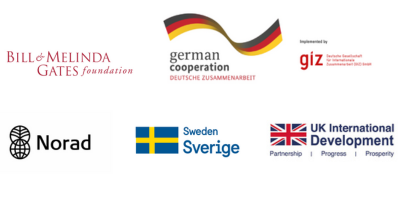Across the GSMA Mobile for Development (M4D), we share three cross cutting impact areas: gender inclusivity, climate change and, through our GSMA Innovation Fund, investment in scalable innovations. For each impact area we attempt to articulate the problems that we seek to address, shared outcomes, and our approach to measuring impact for each programme and at a portfolio level.
To understand and assess our impact we have developed an impact narrative for each impact area.
What is an impact narrative?
Like a theory of change, impact narratives identify the problems our programmes aim to tackle, shared outcomes and establish measurement approaches to assess impact at both programme and portfolio levels. Critically, this enables us to collect and analyse data, allowing for a comprehensive understanding of the impact of M4D’s work. Additionally, it facilitates continuous learning and data-driven adaptation by providing insights into M4D’s contribution to impact and outcome-level changes.
This, along with a set of indicators and approaches to collect and analyse data, creates a narrative of GSMA’s work. It also facilitates ongoing learning and data-driven adaptation. This impact narrative outlines the logic connecting the problem we are solving and how we are addressing the problem. An impact narrative comprises four main questions:
- What are our primary outcomes?
- Why is the intervention needed?
- Who we’re trying to reach?
- How do our interventions work towards positive change for end users?
M4D’s Climate Impact Narrative
Our impact narrative outlines M4D’s pathways to climate impact. Our programming aims to increase households’, communities’, and governments’ resilience and abilities to anticipate, adapt to, absorb and mitigate climate shocks.
This is supported by M4D’s 5 climate outcomes:

M4D’s pathway to achieving these outcomes incorporates work on climate finance, financial and digital inclusion, advocacy and policy, insights and sharing best practice, and supporting and funding innovative solutions to climate problems.
M4D’s climate initiatives leverage technology to improve climate resilience and mitigation at multiple levels. The impact narrative outlines the levels where M4D aims to affect longer-term change: our impact groups. This can be either direct or indirect impact. These groups include:
- Communities – including cities, towns, peri-urban and rural areas
- Vulnerable groups – including women, smallholder farmers, persons with disabilities, households living below the poverty line, and displacement and emergency affected communities
- Governments – spanning all levels of government including local, municipal, national and regional

Measuring progress against the impact narrative
Our teams use the climate impact narrative to drive ongoing, evidence-based adaptation to our programmes. This is supported through our diverse set of Monitoring, Evaluation & Learning (MEL) approaches for assessing the climate impact of our programmes. These methodologies include:
- Creating a toolkit to support M4D’s climate MEL, which involves piloting Environmental Impact Assessments (EIAs) and geospatial analyses to aid our innovators (more on this in an upcoming blog) in understanding their climate impact.
- Employing outcome-based surveys to gauge shifts in household and community-level resilience brought about by M4D programming.
- Conducting sustainability interviews with innovators to ascertain how their business models have evolved in response to user feedback.
These approaches enable M4D to monitor progress, pinpoint areas for enhancement, and refine strategies as needed. The insights gathered through data-driven MEL not only offer valuable feedback on effectiveness but also contribute to a broader comprehension of climate change dynamics. This promotes continuous learning and facilitates well-informed decision-making, thereby aligning our efforts more effectively with sustainability and environmental resilience goals.
This work is supported by The Bill & Melinda Gates Foundation, The Foreign, Commonwealth & Development Office of the United Kingdom Government, The German Corporation for International Cooperation (GIZ) and The Norwegian Agency for Development Cooperation (Norad), The Swedish International Development Cooperation Agency and supported by The GSMA and its members.



